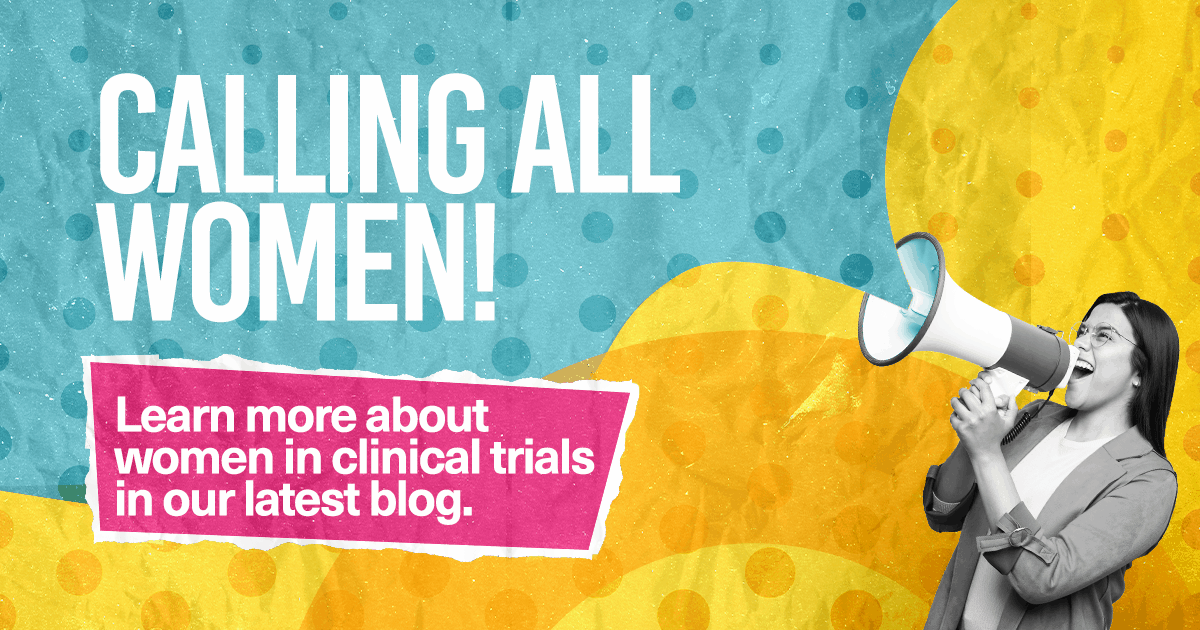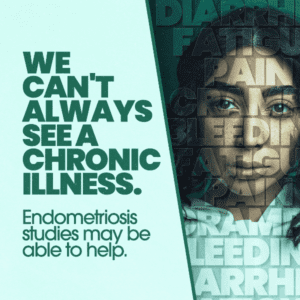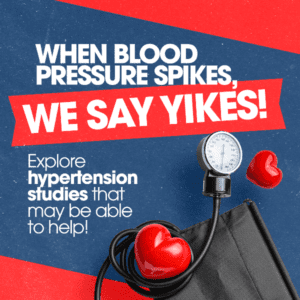Over 2,000 years ago, during an influenza outbreak, it was first noticed that women respond differently to disease than men. They also do not respond the same to treatments. Despite this, many current therapies have only been evaluated in men. The progress of addressing the underrepresentation of women in clinical trials is improving at a snail’s pace. In the meantime, we are calling all women to the frontlines. It’s time to take action and learn more about why their lives may depend on more women participating in research.
Notable Differences in Women
The differences between the male and female responses to medicines are not simply limited to average body size but metabolic and hormonal differences that cause changes in how the body responds to and what a medication does to the body. Factors affecting how women metabolize medications include:
- Women have different concentrations of digestive enzymes in the mouth, stomach, and liver.
- Female hormones fluctuate during puberty, pregnancy, and menopause. These hormones also allow women to convert food into fat more easily, causing increased deposition of fat.
Other factors include genetic variations, environmental differences, and disparities in the practice of medicine between men and women.
Treating Women Based on Male-Dominated Data
For decades, drugs were approved without being tested on women or factoring whether women would have different reactions or require different dosages than men. Many current therapies were approved before the ban on women participating in clinical trials was lifted in 1993. Without enough proper gender representation in clinical studies, the result is a shortage of data about the long-term effects of medicines on women. This puts them unknowingly at higher risk for adverse side effects and severe harm.
Improving the Future of Women’s Health
Participating in clinical trials helps women gain access to safer and more effective treatment plans; it can also help lessen the risk for conditions prevalent in females. Cardiovascular disease is the No. 1 killer of women worldwide. Yet females represented less than 40% of the people enrolled in heart disease and stroke clinical research. We owe it to ourselves and future generations of women to do better, ladies.
While women face unique challenges when participating in research, many clinical research sites offer extended hours, transportation assistance, and other incentives to help ease any potential participation burdens. My Local Study is a convenient website where you can learn more about participating in clinical trials and locate enrolling options in your area. Get started today! Pop on over to mylocalstudy.com now!
Sources:
https://pharmaceutical-journal.com/article/feature/why-we-need-to-talk-about-sex-and-clinical-trials



